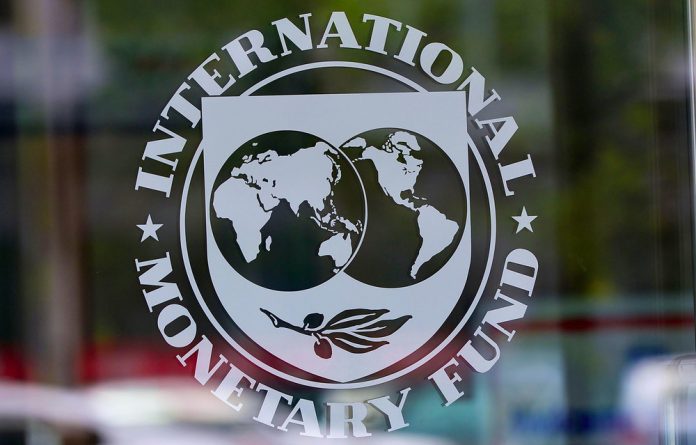ZIMBABWE'S banks have reneged on a pact with the Reserve Bank of Zimbabwe (RBZ) aimed at lowering borrowing costs for the country's struggling industrial sector and encouraging domestic savings.
Banks signed a memorandum of understanding (MoU) with the RBZ in February this year, which among other measures prohibited the sector from charging fees on deposits below $800.
The MoU, in which both parties undertook to cap interest rates at 12,5 percent per annum, added that annual lending rates should be above a bank's weighted average cost of funding.
The agreement runs until January 2014.
But in its report covering the quarter to July 2013, the African Development Bank (AfDB) said the market had been hit by significant upward reviews of interest rates starting June 2013, while in some cases, banks had lowered deposit rates by as much as one percentage points.
The development pointed to the fact that the interest rate policy reluctantly agreed to by the Bankers Association of Zimbabwe (BAZ) could have collapsed after hitting banks' incomes at a time overheads continue surging, leaving financial institutions in a precarious position.
Last week, reports said the banking sector's post-tax profits for the half-year to June 30, 2013 declined to $52 million from $63 million.
Harare headquartered advisory firm, MMC Capital, attributed the fall in profits to the MoU.
"Total profit after tax for the reporting banks amounted to $52,1 million for the half-year ending 30 June, 2013 relative to $63,3 million in 2012," MMC said in an analysis of the financial sector.
"The deterioration in earnings was partly due to the Memorandum of Understanding which took effect on the 1st of February 2013. The signing of the MoU with the central bank resulted in banks taking a knock in non-funded income. Historically, non-funded income has been the major contributor to most banks' revenue and the MoU was a major blow to the top line. Yields on assets were capped whilst the cost of funds was growing. For most banks, interest expense has been growing ahead of interest income, tightening the margins," the MMC analysis said.
It said cost to income ratio had remained relatively flat at 72 percent, while total banking assets had grown by 19 percent from $4,35 billion as at June, 2012 to $5,16 billion as at June, 2013.
"The outlook for the economy remains fraught with uncertainty as the national savings rate has been declining and is faced with heightening headwinds," said MMC.
AfDB said in its report: "Commercial bank weighted average lending rates for both individuals and corporates firmed from their June 2013 levels of 14,29 percent and 9,46 percent, to 14,39 percent and 9,65 percent in July 2013, respectively."
"Over the same period, merchant bank weighted average lending rates for corporates also firmed from 16,89 to 16,97 percent.
"However, merchant bank weighted average lending rates for individuals softened from 17,78 to 17,70 percent over the same period," the report said.
The interest rate hikes, would have far-reaching implications for struggling industries that had already been failing to service loans.
Increasing interest rates also increases the cost of capital and impose heavy burdens on productive sectors.
AfDB, which quoted reports from the RBZ, said commercial bank savings rates had remained within the November 2012 ranges in July 2013.
Banks had been computing savings rates within the ranges of 0,15 and eight percent since November last year.
"However, the three-month deposit rate range changed from four to 20 percent in June 2013 to three to 20 percent in July 2013. In general, interest rates have not changed significantly, despite the signing of a memorandum of understanding between the Reserve Bank of Zimbabwe and banks. The wide range in interest rates across the banks conceals any possible changes within the old ranges, which is a reporting challenge associated with the interest rate data; the interest rate data do not show the within-range changes," the report said.
- fingaz
 Students arrested for opposing Mnangagwa term extension
Students arrested for opposing Mnangagwa term extension  South African ambassador falls to death from Paris hotel room
South African ambassador falls to death from Paris hotel room  India dumps US Treasury bills
India dumps US Treasury bills  Zimbabwe's dollar stock exchange surges 45%
Zimbabwe's dollar stock exchange surges 45%  Gold edges up as traders await guidance
Gold edges up as traders await guidance  Zimbabwe gold prices move to 118.26 per gram
Zimbabwe gold prices move to 118.26 per gram  Young Investment Professional (YIP) Graduate Programme 2019
Young Investment Professional (YIP) Graduate Programme 2019 











 Young Investment Professional (YIP) Graduate Programme 2019
Young Investment Professional (YIP) Graduate Programme 2019
Editor's Pick